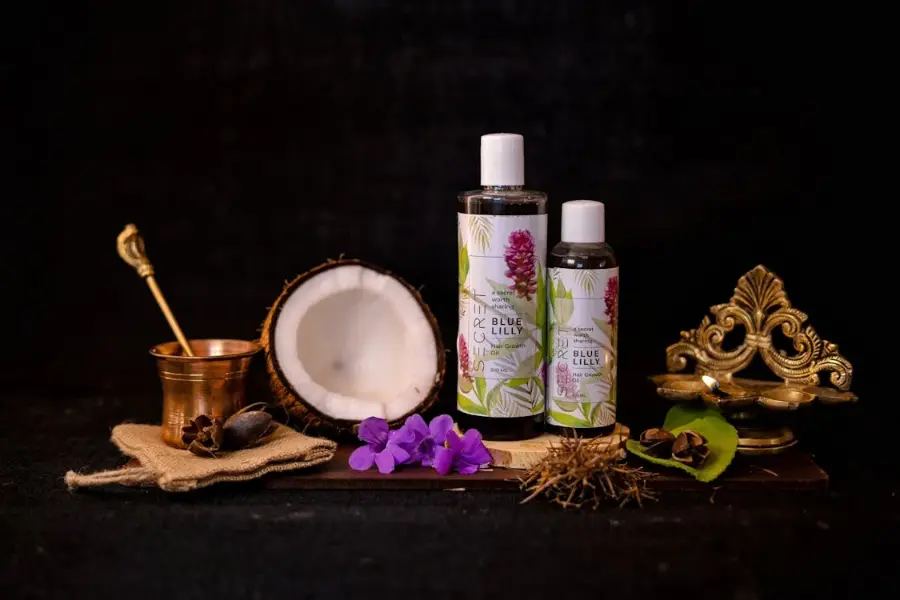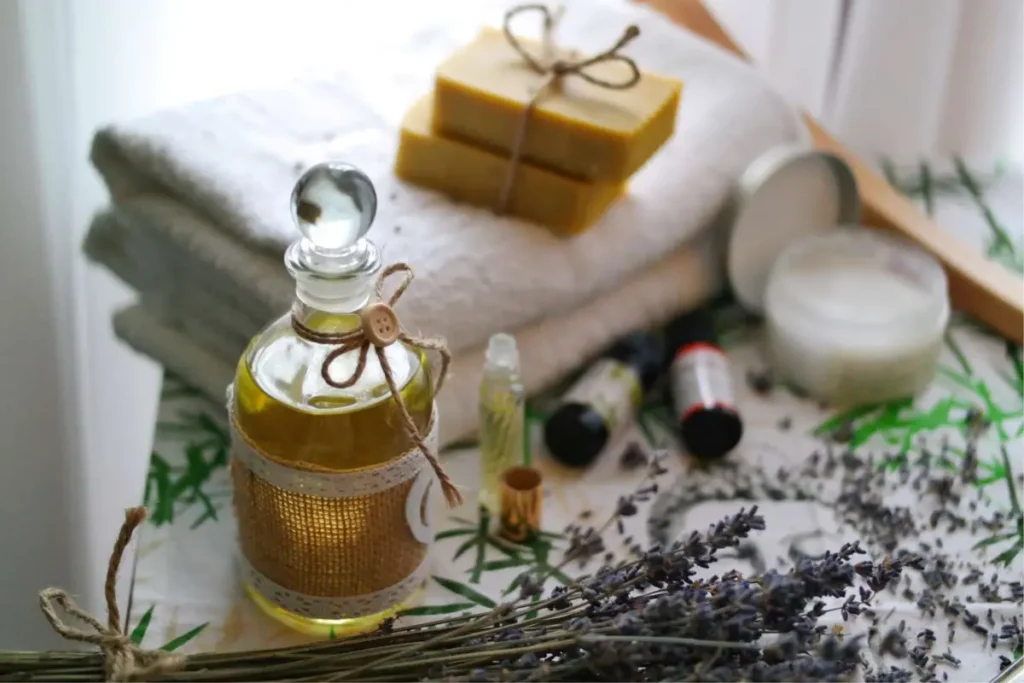Dealing with delayed hair growth or loss can be aggravating. Many commercial products promise rapid results, but they also frequently include ingredients that may do more damage than benefit. Natural hair growth oil remedies, especially applying growth-promoting oils, can be highly beneficial in this case. These oils have been fed to the scalp and stimulated hair follicles for millennia, therefore promoting good, sustained development free of adverse consequences. This comprehensive analysis will look at the science behind these oils, which ones are ideal to use, and how you could include them in your regimen for taking care of your hair.
The Science Behind Hair Growth and Oils
First of all,lets know the science behind hair growth and oils.A complex process, hair development depends on several elements including genes, food, and scalp condition. Among the finest ways to promote natural hair growth is by applying hair growth oils. These oils’ crucial minerals, vitamins, and fatty acids feed the scalp and stimulate hair follicles, therefore avoiding hair loss and inspiring regeneration.
Ricinoleic acid found in some oils, including castor oil, enhances blood flow to the scalp. This better circulation guarantees that hair follicles get the nutrients required for natural hair growth. Oils also retain moisture and lower damage from external elements, therefore forming a protective barrier around the hair shaft.
Top Natural Oils for Hair Growth
Then, gather knowledge about top natural oils for hair growth.
1. Castor Oil
Packed in ricinoleic acid, castor oil is among the most well-known hair growth therapies. This acid increases blood flow to the scalp, therefore promoting natural hair formation and stimulation of the hair follicles. Its antifungal and antibacterial properties also aid to maintain the condition of the scalp.
Warm a little bit then massage castor oil into your scalp. Leave it on minimum one hour, or overnight, for best effects. Regular use of castor oil can assist to develop thicker, stronger hair and reduce hair breakage.
Castor oil has long been used for its anti-inflammatory and antibacterial qualities, according to research, which would help to explain its potency in encouraging hair growth (Journal of Ethnopharmacology, 2015).
2. Coconut Oil
Another well-liked hair development oil with strong penetration into the hair shaft is coconut oil, which supplies necessary hydration and nutrients. It especially works well for lowering the main cause of hair breakage—protein loss. Additionally present in coconut oil is lauric acid, which has antibacterial effects supporting scalp health.
Apply coconut oil to your scalp and hair, concentrating on the ends to stop split ends, for natural hair growth. Before washing it out, let it in for at least half-hour. It’s also a leave-in conditioner for damaged or dry hair.
Reference: Since coconut oil lowers protein loss, studies have indicated it to be rather successful in reducing hair damage (International Journal of Cosmetic Science, 2003).
3. Argan Oil
Rich in carotenoid, crucial fatty acids, and vitamin E, argan oil—often mentioned as “liquid gold—is a strong hair growth oil. Rebuilding deface hair and uplifting a healthy scalp—which is essential for natural hair development—helps Argan oil advance gloss and smoothness; hence, it is very obliging for people with dry or frizzy hair.
To use, massage damp hair into your scalp after a few drops of argan oil have been applied. It can also be a styling agent to help your hair get gloss and control frizz.
Reference: A great component in hair care since argan oil is well-known for its hydrating and anti-inflammatory effects (Evidence-Based Complementary and Alternative Medicine, 2013).
4. Rosemary Oil
A wonderful hair growth oil since rosemary oil is well-known for enhancing circulation. It stimulates hair follicles, so encouraging natural hair growth and stopping thinning of the hair. Moreover useful for treating dry scalp and dandruff is rosemary oil.
To use, massage a few drops of rosemary oil into your scalp after mixing it with a carrier oil such as coconut or jojoba oil. Before washing it out, let it on for at least half an hour. Frequent use can produce thicker, healthier hair.
Reference: Studies have found that rosemary oil promotes hair regeneration just as successfully as minoxidil, a well-known hair growth medication ( Skinmed Journal, 2015).
5. Jojoba Oil
Jojoba oil is special since it quite resembles the natural oils created by the scalp. It helps to clear extra sebum and unclog hair follicles, preventing blockage of hair development. Jojoba oil, a hair growth oil, offers the nutrients required for natural hair development without weighing the hair down.
Applying jojoba oil straight to your scalp and hair will help; alternatively, blend it with other essential oils for more advantages. It can also be applied as a deep-conditioning treatment to add moisture back into dry, damaged hair.
Reference: Jojoba oil has been investigated for its moisturizing qualities and capacity to stimulate hair development by preserving a balanced scalp (Journal of Cosmetic Dermatology, 2013).
How to Use Natural Oils for Maximum Effectiveness
After that, knowing how to use natural oils for maximum effectiveness is very important. Using hair growth oils calls for just as much technique as the type of oil you select. These ideas can help you to maximize the potency of these natural oils:
Scalp Massage: Oil massage your scalp gently guarantees that the nutrients in the oil reach the hair follicles and aids increase circulation. Natural hair growth can be greatly accelerated this way.
Leave-In Time: To get optimal effects, leave the oil on your scalp for at least half an hour to let the nutrients sink right down. You can leave the oil overnight for more excellent conditioning.
Frequency: Use hair growth oils two to three times a week depending on your hair type and need. Finding the proper balance is essential since overuse could result in accumulation.
DIY Hair Growth Oil Blends
Finally, If you want to take your natural hair growth routine to the next level, consider creating custom oil blends. Combining different oils can enhance their benefits and address multiple hair concerns. Here’s a simple recipe for a DIY hair growth oil blend:
- 2 tablespoons of castor oil
- 1 tablespoon of coconut oil
- 5 drops of rosemary oil
- 5 drops of argan oil
Combine the oils then treat your hair and scalp. Massage for five to ten minutes; then let the mix on for at least one hour before rinsing it out.
Conclusion
A robust, safe, and efficient approach to encourage natural hair development is natural oils. From castor oil to argan oil, these hair development products offer the nutrition your scalp and hair demand to flourish. Including them within your regimen will result in more robust, more resilient, and better-looking hair. Why, then, should you wait? Selecting the correct oil for your hair type will start your natural hair growth adventure right now.
References:
- Journal of Ethnopharmacology, 2015: https://www.sciencedirect.com/org/science/article/abs/pii/S1525779721003962
- International Journal of Cosmetic Science, 2003: https://pubmed.ncbi.nlm.nih.gov/12715094/
- Evidence-Based Complementary and Alternative Medicine, 2013: https://www.scirp.org/html/36776.html
- Skinmed Journal, 2015: https://pubmed.ncbi.nlm.nih.gov/25842469/
- Journal of Cosmetic Dermatology, 2013: https://onlinelibrary.wiley.com/doi/abs/10.1111/jocd.12058


